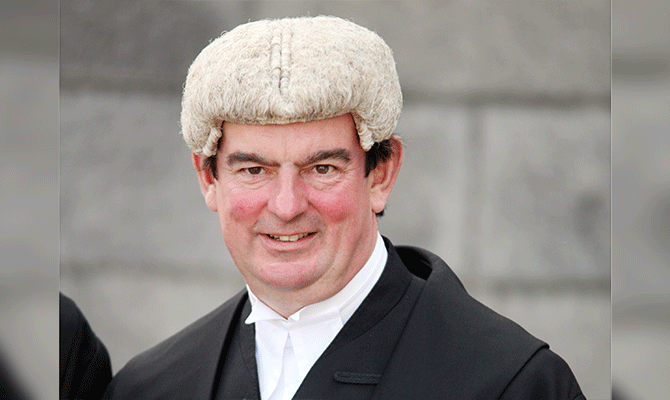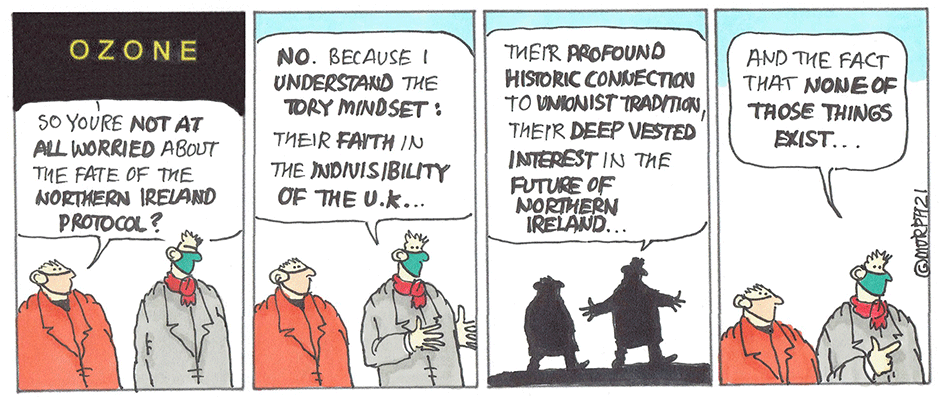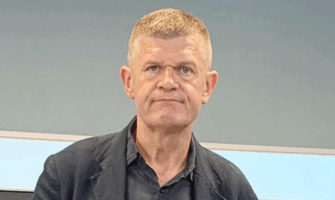
George Bermingham
A DECADE-LONG legal offensive by barrister Eugenie Houston against members of the Bar Council, the Professional Practices Committee (PPC), the Professional Conduct Tribunal (the tribunal) and the barristers Appeals Board over her alleged treatment at their hands has finally been seen off.
The legal saga was sparked in 2011 by two solicitors who complained that Eugenie had directly contacted clients of theirs (Houston had previously been instructed by the solicitors). Complaints to the PPC and to the tribunal resulted in merely a mild “advisory” opinion to Houston in 2015 saying that she should not repeat the exercise or breach the code of conduct. A year later, parallel to this spat, Houston was excluded from the Law Library after an unconnected dispute over library fees.
Eugenie is not a woman to be trifled with and she launched a raft of five actions (later consolidated into one) against members of the barristers/legal bodies described above (although not the Law Library), resulting in a legal bill of more than €1/2m, which must be paid by the legal eagles’ organisations despite the fact that they ‘won’ the case.
And what a case. Houston’s High Court action made claims of breaches of competition law, defamation and assault in a no-holds-barred action that heard dramatic charges levelled at luminaries of the legal world. Describing Houston’s assault allegation in the High Court action Judge Michael Twomey said she was “not alleging that any of the defendants were ever physically violent or physically threatening to her. Rather, she is claiming that she felt under duress and strain as a result of the complaints made against her and the manner in which the defendants handled these complaints, to such a degree that she claims that she felt threatened and so it is on this basis she claims that she was assaulted”. Houston also told the Court of Appeal that she saw hatred in the eyes of High Court judge Mr Justice Twomey when he delivered his judgment.
In his judgment, President of the Court of Appeal, George Birmingham, said: “We do not doubt that she truly believes that the defendants attacked her rights and dehumanised her and that she was treated like a Jew in Nazi Germany; that she was the subject of a [metaphorical] punishment beating; that she was inflicted with modern-day slavery and subjected to a reign of terror.” However, he concluded that “this is an appeal that must be dismissed”.
Birmingham was also critical of and disturbed by disparaging comments from Houston about various individuals. Houston, the judge said, when referring to a doctor, a lay member of the tribunal, said that he “should be struck off as a doctor for the conduct that he was engaged in. … she referred to another lay member, a distinguished academic, in disparaging terms as ‘Mammy Hyland’ or ‘Irish mammy, this, prompted by the fact that the lay member in question had a daughter who was practising at the bar. She repeated a suggestion that a barrister, who acted as chairman of the tribunal, was suffering from dementia”.
The daughter of ‘Mammy Hyland’ is Niamh Hyland, now a High Court judge, who is unlikely to have ever been described in such irreverent terms on or off the bench. But the real recrimination is likely to occur when the €1/2m plus bill for legal representation at these hearings has to be paid by the Bar Council.




















